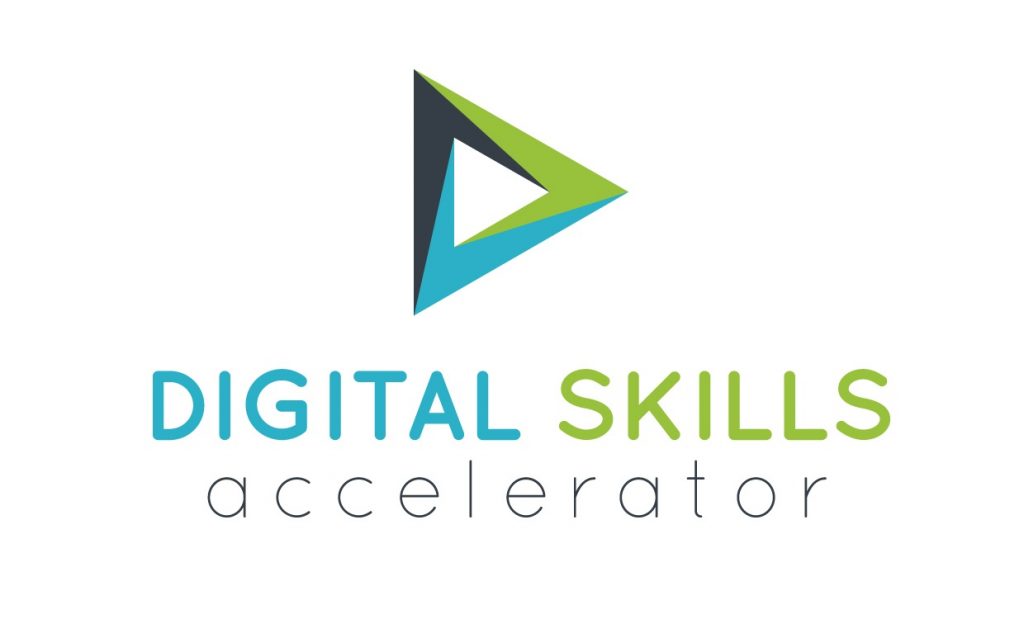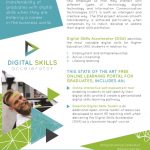Digital Skills Accelerator (DSA) enhances the quality, relevance and transferability of graduates with digital skills when they are entering a career in the digital business world. DSA brings the graduate through a customised self-directed learning system tailoring their skills in specific identified areas. It ensures a win-win situation for both the graduate and new employer so that they interact with different types of technology, digital technology and information communication technologies. The DSA project ensures smooth transferability is achieved, particularly when learners try to induct, develop or update their digital skills portfolios.
This state of the art FREE online learning portal includes an:
Online interactive self-assessment tool enabling students to self identify their digital skills’ profile and create a personalized digital skills learning pathway
Essential Digital Skills Toolkit is an additional open, online toolkit of resources developed to assist HE teaching staff when delivering the Digital Skills Accelerator (DSA) as a classroom taught course
Digital Skills Accelerator Survey
The purpose of the DSA survey was to drill down to those skills that are needed in a number of areas of competence that are most important for an organisation. The survey was conducted by asking employers, students and higher education staff what they thought. The areas we covered included the following:
Information: Browsing, searching, filtering, evaluating, storing, retrieving, sharing, content, developing content
Digital & Technology: Interacting, collaborating through digital channels, netiquette, programming, solving technical problems, expressing needs & identifying technological responses, innovating/creating/solving using digital tools, identifying digital competence gaps
Citizenship: Engaging online citizenship, netiquette, protecting health & environment
Privacy & Security: Managing digital identity, copyright & licenses, protecting devices, protecting data and digital identities
Key Findings
Employers – 30% of employers consider that students entering the workforce are not properly trained in digital skills
“Developing content” is considered important only for employers Higher Education Staff
Higher education staff stated there is room for improvement – HE staff and employers share a very similar view on the relative importance of digital competences, concretely considering “Information” and “Communication” competences as the most important in the top six
Students
Surprisingly, students considered “Protecting devices” as one of the most important competences, and also in the communication group “Engaging in online citizenship” is at the top. Other insightful qualitative findings include the perception of an uneven intensity of training for different competence groups, and the difficulty employers find in assessing digital competencies at recruiting time.
Get Connected to Digital Skills Accelerator Project
#digitalskillsaccelerator #dsaprojecteu





